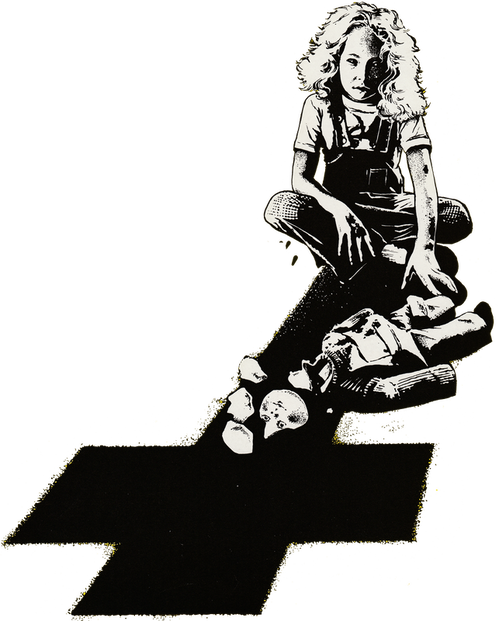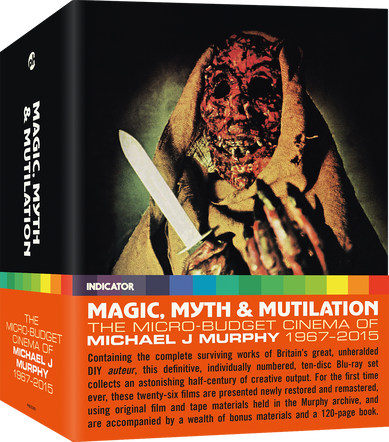RAISING HELL: BRITISH HORROR CINEMA IN THE 1980s AND 1990S
AHRC LEADERSHIP FELLOWSHIP (£141,706, COMMENCING SEPTEMBER 2021)
PRINCIPAL INVESTIGATOR: JOHNNY WALKER
PRINCIPAL INVESTIGATOR: JOHNNY WALKER

Before its re-launch in the mid-2000s, Britain's most iconic producer of horror movies, Hammer Films, ceased feature film production in 1979. For some, this sounded the death knell for domestic horror production, prior to the genre's "rebirth" in the early 2000s with mainstream hits such as 28 Days Later (2002). While little-acknowledged, the intervening two decades saw numerous domestic horror productions materialise, enjoying varying levels of success and international exposure, albeit rarely in cinemas. Indeed, British horror's presence was most felt in the nascent video cassette market.
This project, "Raising Hell: British Horror Cinema in the 1980s and 1990s", aims to explore what British horror film production of the 1980s and 1990s reveals about contemporaneous film culture and society in Britain. It seeks to plug gaps in dominant scholarly and popular narratives regarding commercial filmmaking, and argue that the significance of the genre to the period in question has been understated. The project argues that past histories of British film take too much for granted regarding British horror's non-/marginal presence in cinemas during the 1980s and 1990s and that judgments as to the quality (or lack thereof) of the films produced typically precludes meaningful analysis.
By locating British horror films within an industrial and socio-cultural context, the project seeks to identify the key players in horror film production, the resources that were available to them, how they navigated the tumultuous climate of increased film censorship and new legislation pertaining to video, and the extent to which their films are socially engaged. It will show that "British horror" during the period under scrutiny was a broad church straddling various budgets and distribution trajectories, from mainstream money-spinners (e.g. The Shining and Hellraiser) to amateur works (e.g. Invitation to Hell and Bad Karma). A more nuanced examination of domestic horror film production during the 1980s and 1990s will enable a greater understanding of the history of popular British cinema, and the lasting impact of this period on the present.
The project is on-going.
This project, "Raising Hell: British Horror Cinema in the 1980s and 1990s", aims to explore what British horror film production of the 1980s and 1990s reveals about contemporaneous film culture and society in Britain. It seeks to plug gaps in dominant scholarly and popular narratives regarding commercial filmmaking, and argue that the significance of the genre to the period in question has been understated. The project argues that past histories of British film take too much for granted regarding British horror's non-/marginal presence in cinemas during the 1980s and 1990s and that judgments as to the quality (or lack thereof) of the films produced typically precludes meaningful analysis.
By locating British horror films within an industrial and socio-cultural context, the project seeks to identify the key players in horror film production, the resources that were available to them, how they navigated the tumultuous climate of increased film censorship and new legislation pertaining to video, and the extent to which their films are socially engaged. It will show that "British horror" during the period under scrutiny was a broad church straddling various budgets and distribution trajectories, from mainstream money-spinners (e.g. The Shining and Hellraiser) to amateur works (e.g. Invitation to Hell and Bad Karma). A more nuanced examination of domestic horror film production during the 1980s and 1990s will enable a greater understanding of the history of popular British cinema, and the lasting impact of this period on the present.
The project is on-going.


